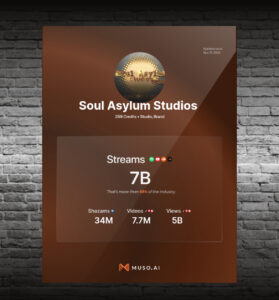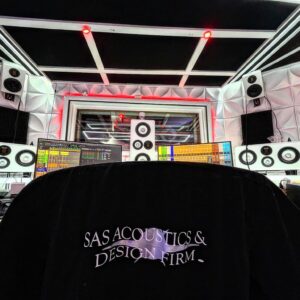Mixing and mastering the audio record is one of the main tasks you perform as a mixing engineer. They are the final steps in music production that make your song sound way more professional than before.
Mastering is also known as the final polish that you do to your soundtrack, it makes your track shine, with clarity. Mastering makes sure that there’s proper consistency across multiple soundtracks and each has the clarity and loudness you are looking for.
But is there only one way to master your track? You must have heard people say, mastering is quite hard, and the way to master your track is a forest of blades.
Let me tell you, this is not true, it’s not that hard, but you need to master it carefully. If done properly, it will ensure that your soundtrack translates well across several listening environments. Hence, maintaining a professional standard and taste.
There are many myths about mastering a music track, you must have heard some from the industry members. This article is all about debunking the myths, the common myths about mastering a track to make it sound professional.
Read till the end, and count how many myths you have come across to date.
Let’s get started with the common ones!
1. Mastering can totally save your music track:

One of the most believed things in the music industry about mastering is that it can fully save your poor mix and turn it into a super masterpiece.
Well, sadly it is not the truth, your mix, and your music can only be enhanced with the help of mastering. Mastering is not the cure to all audio-related problems, but a way towards betterment of some.
Mastering cannot totally make any piece a masterpiece. But it can cure some elements like- poor balance between instruments, and muddy frequency to make it sound much more professional.
If you already have a solid track ready with you, then there’s nothing to worry about. Just use audio mastering judiciously, and watch your track turn premium.
(Also Read More – What is Sound Mixing? What are Sound Mixing Techniques? )
2. There is one right way to master:
There is never one right way to do anything, anything! You just need to figure out what works best, and voila, that becomes the right way.
Every song and every soundtrack is unique, whether it is pop music, hip-hop, rock, jazz, or any other kind. Every type has its own requirements and its own mastering approach.
As a mastering engineer, you would know how one formula never fits everywhere- every type.
Every music type requires it to be tailored according to its genre, especially with the artist’s vision, and how intended the music experience should be.
3. Loudness is everything:
Have you ever enjoyed a disco night, a DJ night? All the sounds are so loud! But guess what, not every song requires to be loud, some are delicate acrostic ballads that require low pitch, and frequencies.
Overly emphasizing the loudness of the track may result in compromised dynamic range, and lead to muddy frequency.
The DJ night volume is good for a short time only, and you don’t want your listeners to have a hard time listening to your hard effort, right? Leveling the volume too high can not just result in listeners’ fatigue, but also a distorted listening experience.
So, make sure your track isn’t loud below the desired level.
4. Stem mastering is no different from mixing:

Stem mastering and mixing, are both known for their incredible ability to manipulate audio tracks, despite that they are different. And are used for different specific purposes.
Let me give you a brief explanation of their work:
– Stem mastering sums up multiple ‘stems’ or groups of stereo audio tracks of different instruments (drums, or vocals) in order to create a final master mix.
– Whereas, mixing combines all the different instruments into a coherent mix down, and adjusting panning, EQ compression, and reverb. In order to achieve a well-balanced result, that sounds fantastic.
5. Increased compression results in better sounds:
Nah, it’s not true. No doubt, compression is a powerful tool in the mixing process, but more of anything leads to undesirable results.
And you don’t want your effort to go to waste just because of over-compressing your mix. Over-compression can lead to a flattening of your track’s natural dynamics, and make it sound really low-key, and lifeless.
So, it is advised to use the compression precisely and judiciously so that your music isn’t compromised at all, and the flow stays flawless.
6. One master is enough for all formats:
As I said earlier, one formula never fits everywhere, neither on music types nor on formats. Every format needs tailoring, whether your playback format is vinyl, CD, or digital streaming, every format requires unique technical requirements.
So, make sure to use different masters for different modes!
( Read More – Dolby Atmos Music Mastering )
7. Mastering standards work for every song:

It is very true that mastering is perfect and can be useful for starting points of the music track, but not for every song. Every song is different from another and has a lot of different characters attached to it.
Mastering presets of a song without adjustments can result in a huge imbalance of the elements, especially in frequency and dynamics.
So, make sure your custom adjusts every mastering preset in order to achieve the best sound quality for your soundtrack.
8. EQ adjustments can fix all the audio tonal issues:
I agree EQ is quite an essential tool in the mastering process, but trust me it is not the elixir for all the tonal issues you are facing. If you have mega tonal imbalances, they should be corrected while you’re at the mixing stage.
EQ is only for small to mid-adjustments that help in enhancing the clarity of the audio, and correct minor issues.
( Stem Mastering VS Stereo Mastering – What is the Difference? )
9. If you have mixed the elements well, then there’s no need for mastering:
So not true! Mastering is like car polish that makes your audio shine, and also makes the elements clearly audible. Even if you are one of the best music engineers out in the market, you still can benefit from mastering your soundtrack.
Mastering puts life, and soul into your track, and makes your good mix sound truly professional, engaging, and impactful.
10. Only analog gears can produce high-quality music:
No doubt, analog gears can significantly provide your track with distinct sound characters. However, they are not the only way you can produce high-quality mastering, digital mastering is equally capable of doing the same, and something even better.
With the help of modern-day DAWs, and plugins, now you can get proper precision, flexibility, plus the desirable control. The level of control that analog gears can not always match.
11. Mastering is a professional tool- made for professionals:
No, it doesn’t matter whether you’re a beginner or an experienced mastering engineer, you can use mastering to win your needs. With the advancements in technology now, mastering has become more accessible than it was ever before.
With online mastering apps and tools, now independent mixing engineers can achieve the professional touch without spending a hefty sum of money.
12. Mastering is always expensive:
Though mastering is a bit costly but not as much as everyone around you exaggerates. You can find budget-friendly mastering studios to quite expensive mastering studios, totally depending on your budget.
And trust me, affordable isn’t cheap, low quality, or compromising. With the proper tools, and knowledge you can turn any piece into a masterpiece without spending a fortune.
Final words:
Recording music can turn out to be a tough task especially when you are a beginner in this field.
Just remember to be organized, have a plan, take your time, and follow the tips mentioned in this blog.
In this blog, we discussed the 12 common audio mastering myths that you should know, before getting into a myth trap. If you are someone who’s facing difficulties in finding the best music studio in Georgia. Don’t worry, we got you. Recording Studios in Atlanta is one of the best recording studios in Atlanta for music production.

